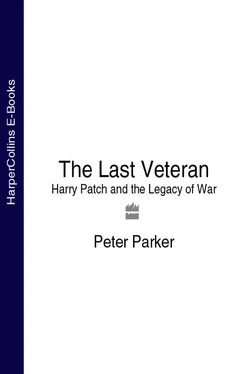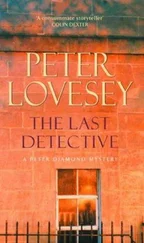As increasing attention was drawn to this small group of men and women, it became clear that eventually it would soon diminish until only one member was left: the Last Veteran. To be the last of anything is an achievement of sorts, but on the whole it is a melancholy and potentially lonely one, as much about extinction as survival. It makes us think of the threatened species with whom we share the planet, as the writer J.R. Ackerley did in 1964. Ackerley suggested a parallel between a death in the animal kingdom and the death of a generation:
In 1914 a tragedy occurred, so shocking, so awe-inspiring, so poignant and so irreparable that if all mankind had put on sackcloth and ashes it would scarcely have seemed an adequate expression of their shame and repentance. Doubtless the First World War springs to your self-important minds. Let it spring off again. […] It was the death of a pigeon. She was female, and she died of old age on September 1, 1914, at one o’clock in the afternoon.
This solitary bird was in fact a passenger pigeon called Martha, living in Cincinnati Zoo, and the last of her once abundant species. One of the final great hunts of the passenger pigeon, which was killed for its meat, took place over five months with a casualty rate of some 50,000 every day. No wonder Ackerley saw a parallel between this mass slaughter and what had happened on the Western Front – particularly since he was writing in 1964 when the fiftieth anniversary of the outbreak of the war was being widely marked. He had himself been wounded in action on the Somme on 1 July 1916 and therefore became one of the 60,000 casualties suffered by the British that terrible day.
The chances were always that the Last Veteran would in some ways be no more distinctive of his kind than Martha was of hers. After leading a life for the most part no different from that of many of his contemporaries, he would nevertheless achieve the signal distinction of being the last Briton to have fought in the Great War. The significance of this did not escape politicians, and there were suggestions that this man, whoever he might turn out to be, should be given a state funeral. This was put before the House of Commons by a former leader of the Conservative Party, Iain Duncan Smith, on 18 April 2006. The idea had been around for some time before this, and Duncan Smith had been prompted to propose it formally after being approached by one of his constituents. Duncan Smith had wondered whether such an event might be considered invidious since there were still many people alive who had fought just as bravely and honourably in the Second World War. The constituent immediately replied that ‘the first world war was different, and that everyone who fought in the second world war recognised that. There was something peculiar about the conditions and nature of that conflict.’ Duncan Smith went on to outline what it was about the First World War that set it apart from other conflicts: the huge casualty figures (one million dead and two million wounded in the British Empire alone); the fact that the bodies of almost half those killed on the Western Front were never found; the appalling conditions in the trenches. Duncan Smith also quoted two examples from the ‘flood of letters’ he had received on this subject, both from nine-year-old schoolgirls who supported the idea of a state funeral. He concluded:
A society that forgets its past and is embarrassed about remembering the sacrifice of those who have gone before is one that loses its past and, with that, loses its future. As those young people I referred to were able to remind me and many of my colleagues, there is something special about pausing to remember. We are not dwelling on or glorifying war, but remembering the sacrifice of those whose sole responsibility was to aid and abet their colleagues and to protect and defend the society in which they lived, and which nurtured them.
A short debate followed in which Duncan Smith’s proposal was broadly welcomed, although everyone agreed that nothing could be done without first ascertaining the wishes of the family of the last veteran to die. If for any reason the family did not want a state funeral, it was suggested, a national service of commemoration should be held instead. Don Touhig, then Parliamentary Under-Secretary of State for Defence, cautioned that however appropriate a state funeral might seem, and whatever popular support there was for it, there might be logistical difficulties in ascertaining who really was the last veteran. More than half the service records of the period had been destroyed during the Blitz, and so reliance was put upon those veterans who had identified themselves. No one was under any obligation to identify themselves and there might be veterans who preferred anonymity or had either by choice or oversight not made themselves known: as recently as March of that year two new French veterans had been ‘discovered’. To further complicate matters, Touhig stated that the government’s definition of a last veteran was rather more flexible than the generally agreed one. He argued that anyone who had served during the war, and even those who had not finished their training and were still in Britain when the Armistice was declared, should be recognised as veterans. It became clear that some sort of service of commemoration might be a more workable arrangement than a state funeral, and this was what the government eventually decided upon. On 27 June 2006 the Defence Secretary, Des Browne, announced that: ‘A National Memorial Service will allow the whole nation to honour the valour and spirit shown by the veterans of WW1 and will commemorate an entire generation.’ This would take place in Westminster Abbey within about twelve weeks of the death of ‘the last known World War One veteran’. As with Duncan Smith’s original proposal, the ceremony would be modelled on the one that took place on 11 November 1920 when Britain’s Unknown Warrior was laid to rest in the Abbey ‘among the most illustrious of the land’.
A state funeral for the Last Veteran would undoubtedly have provided a neater symmetry than a mere service of commemoration, since it would have marked the end of a prolonged period of national mourning which started with the state funeral of the Unknown Warrior. Not only was the Unknown Warrior, like the Last Veteran, an individual representative of all those who served in the First World War, he was also an individual chosen at random, or at any rate by chance, just as the Last Veteran achieved that status by an accident of longevity.
Ever since the Armistice there have been arguments, not all of them seemly, about how the First World War should be remembered, commemorated and represented. In all this the veterans have played a significant and sometimes controversial role. Veterans were not always seen as remarkable, fêted and honoured because they provided a link with a particularly poignant piece of our history. Over the years they had been treated with a great deal less deference and consideration, had been obliged to fight for their rights, had been involved in later battles in which the weapons were bricks and batons and the enemy was the forces of law and order in their own country. They had been both the centrepiece of our national acts of commemoration, and dismissed as increasingly irrelevant, standing in the way of liturgical reform. Above all, they had remained a constant reminder of a major historical event that in all sorts of ways, not least the psychological, shaped the twentieth century.
In Britain the international catastrophe that was the First World War has been adopted as a peculiarly national trauma, one that has cast its shadow down the years and haunts us still. There have been other wars since 1918, and in all of them combatants have had to endure privation, discomfort, misery, the loss of comrades and appalling injuries. Even so, the First World War continues to exert a hold upon the collective imagination in Britain in a way it does not in, say, the USA. The statistics are, of course, extraordinary. On the First Day of the Somme 20,000 British soldiers were killed, the equal of the entire sum of casualties of the Boer War. The number of British service personnel killed in the Second World War was less than half the number killed in 1914–18. Even when you add in the many more civilian casualties Britain suffered during the Second World War – some 60,000 – the overall number of deaths is still smaller than the dreadful tally of the Great War. Over 30 per cent of British men who were aged between twenty and twenty-four in 1914 were killed in action or died of wounds; of those aged between thirteen and nineteen the figure is more than 28 per cent; some 200,000 women were left widows and 350,000 children left without fathers.
Читать дальше












